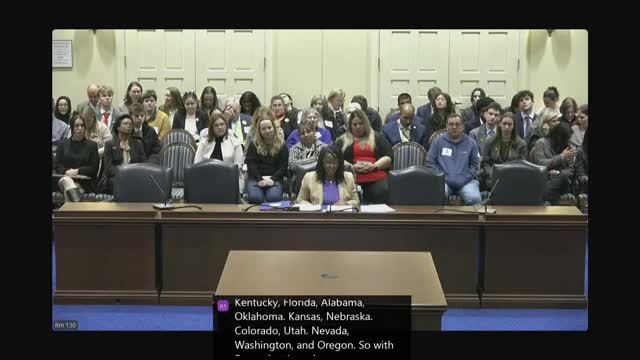Article not found
This article is no longer available. But don't worry—we've gathered other articles that discuss the same topic.
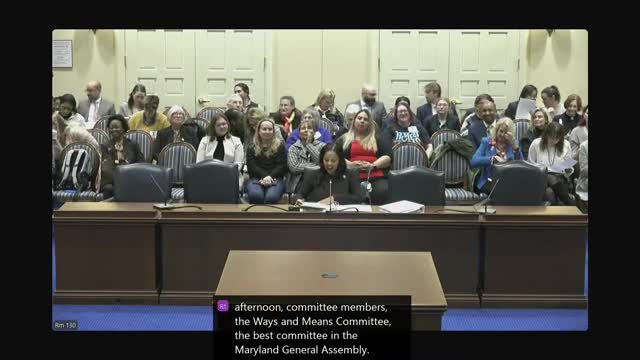
Committee examines bill to require local jurisdictions to adopt comprehensive health education framework
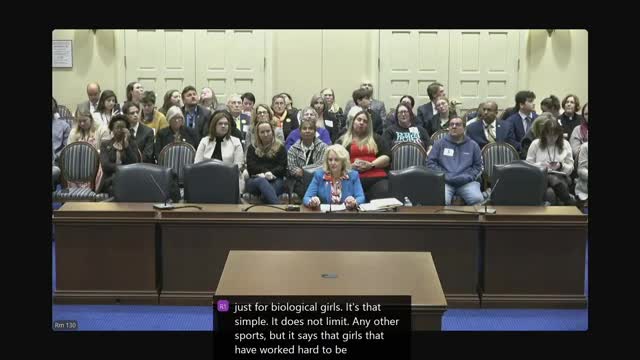
Panel urges HB 325 to allow GED reasoning‑through‑language‑arts exam in Spanish; MSDE and MCPS data cited
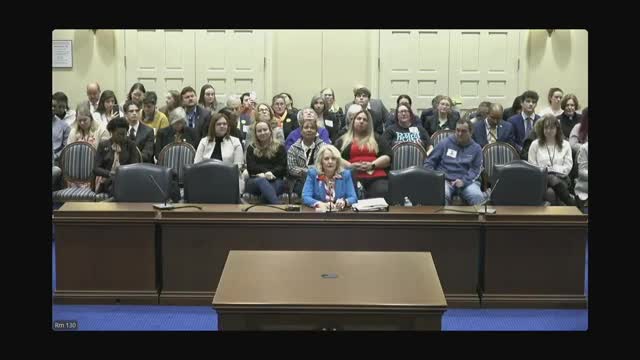
Sponsor says bill to limit JV/varsity girls' sports to biological females protects fairness and safety; supporters and critics testified
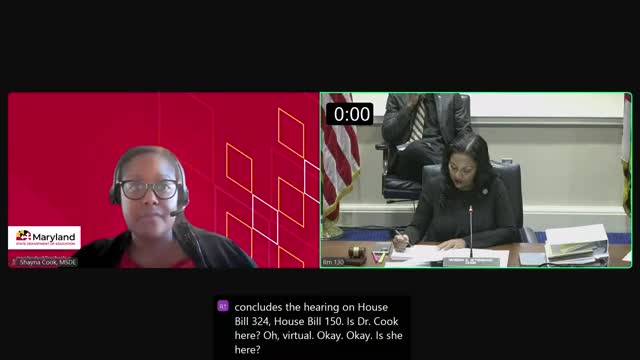
State officials propose letting regulations set first‑aid/CPR ratios for school‑age child care
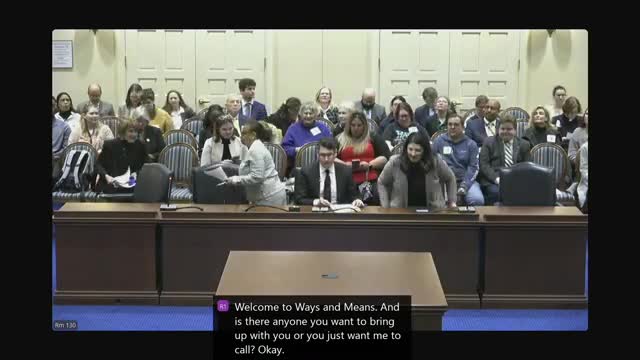
Committee hears push to require anti‑bias training for county school board members
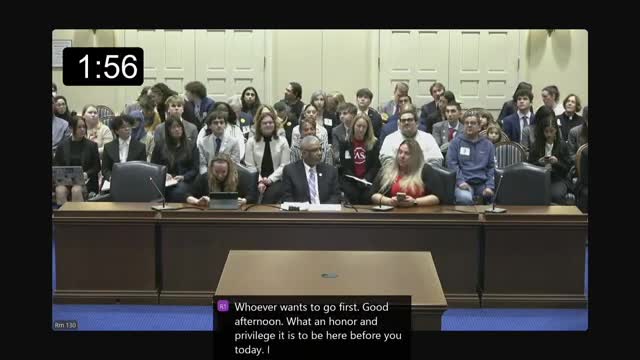
Bill would let financial‑literacy courses count toward Maryland’s service‑learning graduation hours
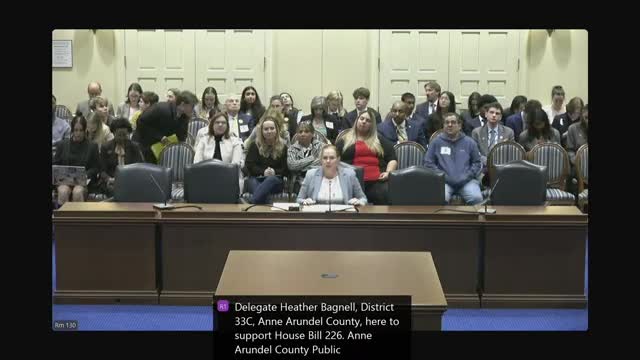
Bill would create Maryland Civic Excellence Program to recognize student and school civic engagement
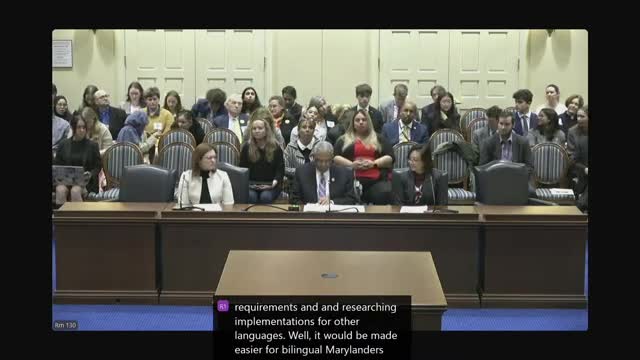
Supporters urge state plan for restorative‑practice schools; MSDE backs statewide framework
